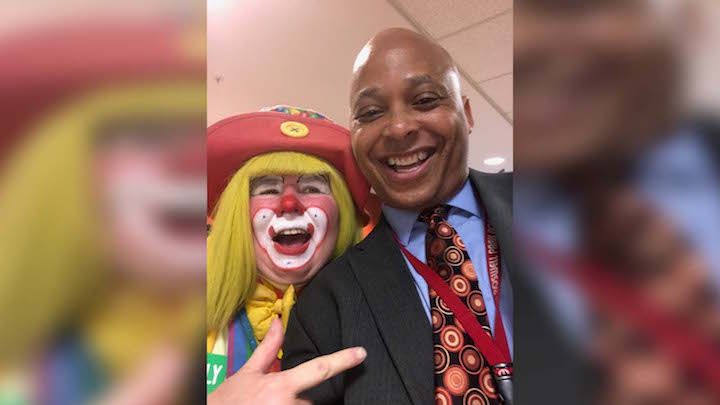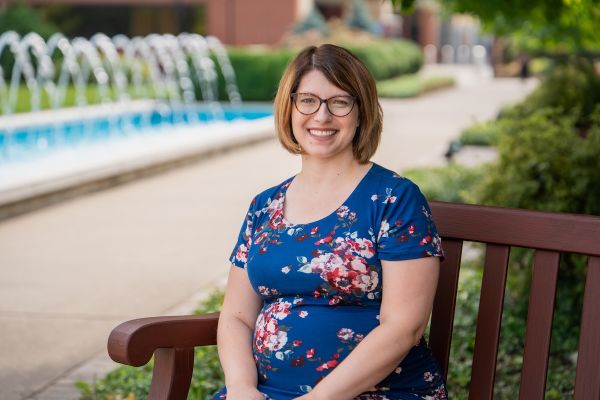“I went to a bookstore and asked the saleswoman, "Where's the self-help section?" She said if she told me, it would defeat the purpose.” - George Carlin
George Carlin’s joke shows us that sometimes we have to work to help ourselves. The old adage “Laughter is the best medicine” might not be too far from the truth. The good feeling that comes from laughing at a skilled comedian, a joke told by a friend or coworker — or the family member who can almost always bring us to tears with their humorous observations and family impressions (don’t we all have one of those?) — truly can’t be beat for lifting our mood and making us feel better, body and soul. Truth is, we all feel great after we share a laugh. So while cancer isn’t funny, when laughter and humor are combined with treatment, they might be the best medicine to help you through this difficult time.
The study of humor in healing began in the 1960s, when Dr. William F. Fry, a professor of psychology at Stanford University in California, published a number of landmark studies on the physiological processes that occur during laughter. He became the first self-proclaimed gelotologist, an expert in the science of laughter. (The word comes from gelos, the Greek word for laughter.)
Research suggests that laughter may provide physical benefits, including:
- Enhanced oxygen intake
- Heart and lung stimulation to improve blood pressure
- Muscle relaxation throughout the body
- The release of endorphins, your body’s natural painkillers
- Improved digestion / relief for stomachaches
- Improved mental function for greater alertness, memory and creativity
Never miss another Cancer Talk blog!
Sign up to receive our monthly Cancer Talk e-newsletter.
Sign up!Cancer patients often struggle with pain, nausea and overwhelming anxiety, “but if you can laugh about it, then you’re in the driver’s seat,” said nurse Patty Wooten in an interview for the blog Get Old. Founding member of the Association for Applied and Therapeutic Humor (AATH) and a member of the professional advisory board for the World Laughter Tour, Wooten is both a professional clown and a cancer survivor. She received the ATTH Lifetime Achievement Award for her work in the field of therapeutic humor. “When you laugh, you take back your power and control,” she told Get Old. “It’s a way of saying, ‘This will not crush me.’”
Dr. Hunter “Patch” Adams, played by Robin Williams in the 1998 film Patch Adams, became famous for using humor in treating his patients. Dr. Adams put into practice the idea that “healing should be a loving human interchange, not a business transaction.” His work with humor and healing continues to this day with groups of dedicated volunteers, dressed as clowns, who travel to various countries in an effort to bring humor to orphans, patients and other people recovering from illness.
“I’ve known patients who’ve worn clown noses to appointments, funny hats to chemo or have written funny things on their bodies prior to surgery,” says Nancy Weil, a certified Laugh Leader, professional consultant and founder of The Laugh Academy. “Patients who are able to find the humor in themselves and their situation say that it not only helps them feel good, but it has a positive effect on their medical team, helps to build stronger relationships and leads to better clinical outcomes.”
So while you’re in treatment, laughter and humor might help you get through this difficult time. Looking for a few ways to get your laugh on?
- Watch a funny movie — or, if possible, live comedy.
- Get to know your sense of humor and make time to enjoy it.
- Learn to tell a variety of jokes .
- When possible, look for the humor in your situation.
- Share time with people who have a sense of humor.
“When you have cancer and can laugh about it, do it and save your worry if it offends others. Cancer gives enough worry. Let it give you some laughs for a change.” - Robert Young, cancer survivor and webmaster of Phoenix5.
Patient Engagement Specialist at Roswell Park, Richard Satterwhite is also a card-carrying professional actor, 22-year improvisational comedy veteran and 11-year cancer survivor.

